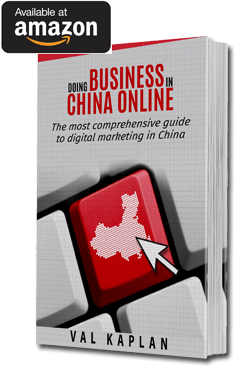One of the four components of 4Ps of marketing is the Product with the others being Price, Place and Promotion. In this post, I will look into specific considerations for this aspect of marketing that have to be taken into account in the case of doing business in China.
The central concept of the “product” element of the 4Ps is the idea of designing and selling the right product, the one that already has or will have its place in the market. Of course, in some situations, a unique product creates its own market but those would be very rare and unique circumstances. One example of such product is an iPad – the gadget that has spawn its own market once it was launched.
Much more often, pre-existing market is the required condition before a product is introduced. How companies can make sure that the product does have the market? The most obvious answer is conducting market research. The problem in China is that the reliable market data is not readily available and finding a suitable market research study is extremely difficult.
While finding some general information about the size of specific markets is usually easier, locating more targeted data on Chinese market proves to be much more complex. There is a number of market research companies which advertise their services with regards to Chinese market research, however, generally low quality of their analysis and unreliable data they base their conclusions on is usually a major concern.
Customized marketing studies can also be very expensive and there is no guarantee of the quality either. Unfortunately, good quality market research for Chinese market still remains a very hard thing to come by.
Of course, the easiest way to figure out the specifics of your product’s intended market is to look at your competitors, companies who have done their homework already or those who simply decided to take a risk. Those are the the questions you should be asking:
- How well are they doing?
- What could you do better?
- How similar or dissimilar their offer is to yours?
- What mistakes do you think they have made and how you could avoid them?
Researching for a specific product in a technically complex market, such as capital equipment, will certainly require in-depth knowledge of the technology and the target market needs. The best way would be getting interviews with the subject matter experts, those could be most helpful and informative.
Since, IP protection is only loosely enforced and the concept of prior art in patent applications is practically non-existent, many Western companies found themselves pushed out of the market by their products’ copycats even before they have managed to get a foothold there.
One aspect you should always be aware of in China is the possibility of your product being copied. Huge number of Chinese businesses have refined the art of producing knock offs of popular products within record time frame. Technologically intensive industries and capital equipment are no exceptions. For example, if your product is mainly mechanical or electrical, let’s say a vacuum pump, it can be reverse engineered and copied relatively easily by an experienced company. Since, IP protection is only loosely enforced and the concept of prior art in patent applications is practically non-existent, many Western companies found themselves pushed out of the market by their products’ copycats even before they have managed to get a foothold there.
If you are planning to market any of those type of products, make sure to inquire about registering your intellectual property locally before a local company can do it. Remember, foreign patents offer absolutely no legal protection in China.
Products that are designed as a combination of hardware and software are much harder to copy, although not impossible. There are companies in China that even manage to reverse engineer electronic cards by X-raying PCBs and figuring out the electronics components.
If your product contains a software module that works in combination with the hardware it would be much harder to copy but there is always a possibility of your competitor stealing the source code. Therefore, it is absolutely essential to safeguard the source code, ideally by never bringing it to China in the first place.
Lastly, another aspect that many Western companies take advantage of in their marketing approach, is the perception of higher quality of Western made products compared to their Chinese equivalents. It allows them to target customers which value quality aspect of the product and are willing to pay premium prices for it. This situation is mostly visible in the consumer market but the same perception does exist in B2B market as well.



